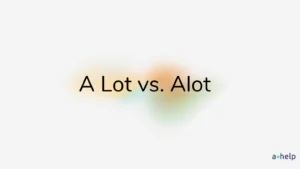Object pronouns are the fundamental part of English grammar. They are used to replace the object of a sentence, which can be a noun or a noun phrase. In simpler terms, object pronouns are the words we use to avoid repeating the names of people or things in a conversation or text. They make our sentences shorter and easier to understand.

✅ AI Essay Writer ✅ AI Detector ✅ Plagchecker ✅ Paraphraser
✅ Summarizer ✅ Citation Generator
For example, instead of saying “I saw Sarah at the store, and I waved to Sarah,” we can use an object pronoun to say, “I saw Sarah at the store, and I waved to her.” In this sentence, “her” is the object pronoun that replaces “Sarah,” making the sentence more concise and flowing better.
There are several object pronouns in English, including “me,” “you,” “him,” “her,” “it,” “us,” “them,” and “whom.” Each of these pronouns serves a specific purpose and is used in different contexts.
Explaining Object Pronouns
Object pronouns are words that replace the object of a sentence. The object is the person or thing that receives the action of the verb. For example, in the sentence “I like apples,” “apples” is the object.
Here is a list of object pronouns in English, along with some examples:
| Object Pronoun | Example |
|---|---|
| me | She called me yesterday. |
| you | I will meet you at the park. |
| him | Can you help him with his homework? |
| her | He told her the secret. |
| it | Please close it. |
| us | They invited us to the party. |
| them | We saw them at the concert. |
| whom | The girls whom I talked to will bring chocolate. |
In each sentence, the object pronoun replaces the name of a person or thing, and that’s the main point.
Using Two Pronounces in a Sentence: Jess and I or Jess and Me?
When using two pronouns or a name and a pronoun together in a sentence, it’s important to choose the correct form based on the role they play in the sentence.
For subject pronouns (I, you, he, she, we, they), use them when the pronouns are the ones doing the action. For example, “Mary and I went to the store.” Here, “Mary and I” are the subjects of the sentence, as they are the ones going to the store.
For object pronouns (me, you, him, her, us, them, it, whom), use them when the pronouns are receiving the action. For example, “The teacher gave Mary and me extra homework.” In this sentence, “Mary and me” are the objects of the sentence, as they are the ones receiving the extra homework.
- “John and she will join us later.” (subject pronoun “she”)
- “Can you send the email to him and me?” (object pronoun “me”)
Remember, when in doubt, try removing the other noun (e.g., “Mary” or “John”) from the sentence and see if it still sounds correct. This can help you decide whether to use a subject or object pronoun.
FAQ
Follow us on Reddit for more insights and updates.





Comments (0)
Welcome to A*Help comments!
We’re all about debate and discussion at A*Help.
We value the diverse opinions of users, so you may find points of view that you don’t agree with. And that’s cool. However, there are certain things we’re not OK with: attempts to manipulate our data in any way, for example, or the posting of discriminative, offensive, hateful, or disparaging material.